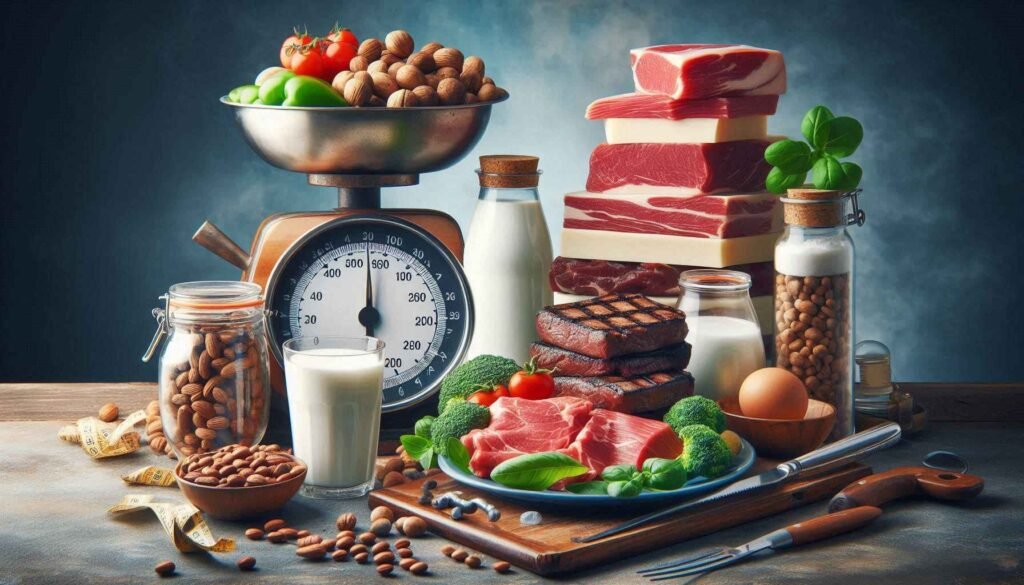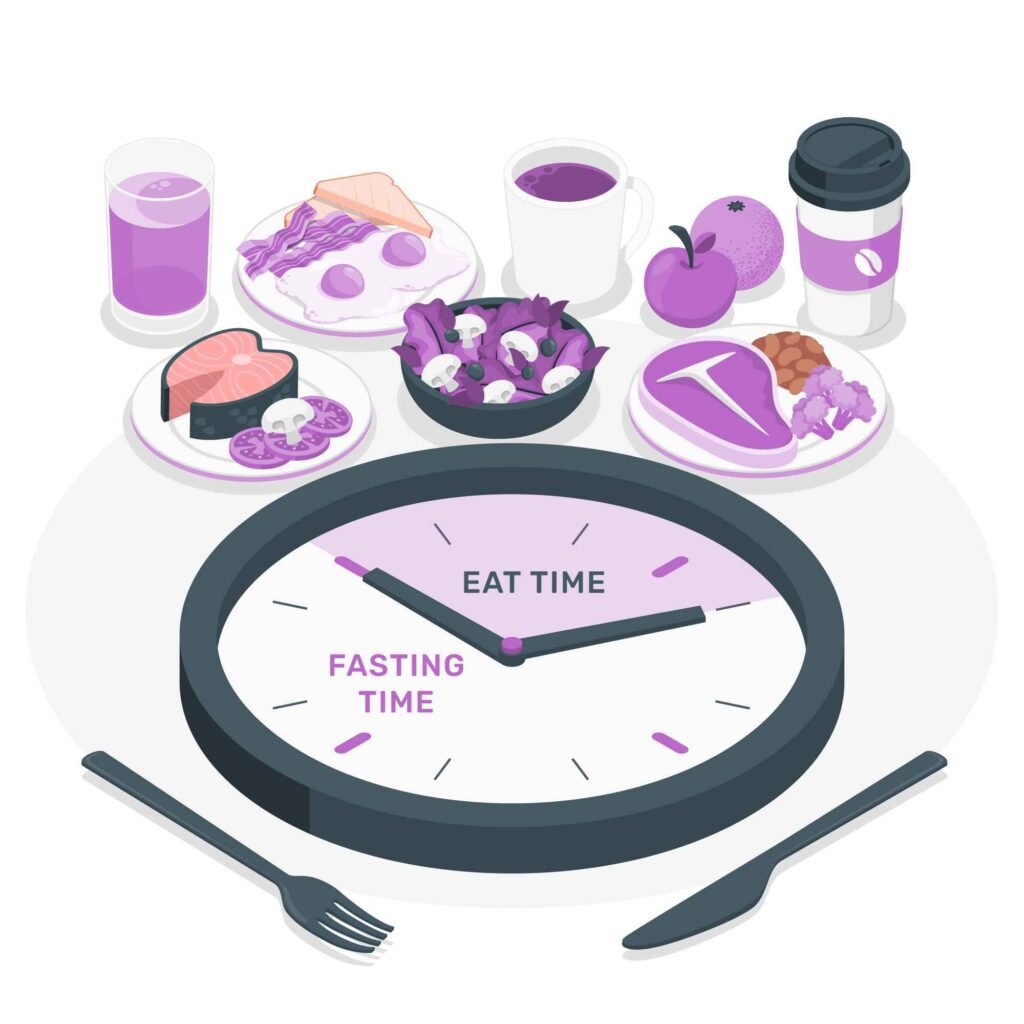
High-Protein Diets: How to Balance Protein Intake with Carbs and Fats
If you’ve been paying attention to the latest trends in nutrition and fitness, you’ve probably heard a lot about high-protein diets. Popular among athletes, weight loss enthusiasts, and muscle builders, these diets are praised for their benefits, such as promoting satiety, aiding muscle growth, and even boosting metabolism. But there’s more to a high-protein diet than just piling on the chicken breasts and protein shakes. To get the best results and avoid any negative effects, it’s essential to balance your protein intake with carbohydrates and fats.
In this article, we’ll guide you through the basics of macronutrients, explain why balance is crucial, and provide practical tips for finding the right ratios. Whether you’re looking to lose weight, gain muscle, or maintain your current health, understanding how to balance your diet will help you reach your goals.
The Role of Macronutrients
A balanced diet isn’t just about eating enough food; it’s about consuming the right mix of macronutrients. The three key macronutrients—protein, carbohydrates, and fats—play distinct roles in the body:
- Protein: Essential for building and repairing tissues, protein is made up of amino acids that support muscle growth, hormone production, and immune function. It’s often seen as the star of high-protein diets due to its ability to promote muscle gain and enhance satiety, helping you feel fuller longer.
- Carbohydrates: As the body’s main energy source, carbs fuel your workouts and daily activities. They’re broken down into glucose, which powers your brain, muscles, and other tissues. However, not all carbs are created equal. While simple carbs (like sugar) can cause quick spikes and drops in energy, complex carbs (such as whole grains and vegetables) provide a slow, steady release of energy.
- Fats: Although sometimes misunderstood, fats are vital for absorbing vitamins, producing hormones, and providing long-lasting energy. Healthy fats, such as those found in nuts, seeds, and avocados, can help keep you feeling satisfied, making it easier to stick to your dietary goals.
Balancing these three macronutrients is essential for overall health and performance. Too much or too little of one can throw off your energy levels, hinder weight loss, or cause nutrient deficiencies.
Why Balance Is Important in High-Protein Diets
High-protein diets involve consuming more protein than the average dietary recommendation (which is around 10-35% of daily calories from protein). While increased protein intake can have numerous benefits—like preserving muscle mass during weight loss or boosting muscle repair after workouts—it’s not effective if the rest of your diet isn’t balanced.
Overloading on Protein Isn’t Always Better
When protein intake is excessively high and carbs or fats are significantly reduced, the body may experience:
- Energy Imbalances: Carbohydrates are still essential for fueling high-intensity activities and brain function. Without enough carbs, you might feel sluggish or experience brain fog.
- Nutrient Deficiencies: Many carbs and fats come with vitamins, minerals, and fiber that are crucial for health. Severely limiting them could lead to deficiencies.
- Digestive Issues: Protein can be harder to digest than carbs or fats. When consumed in large amounts without sufficient fiber or fats, it may cause constipation or other digestive problems.
How to Determine the Right Macronutrient Ratios
There isn’t a one-size-fits-all answer when it comes to macronutrient ratios. Your ideal balance depends on factors like age, sex, activity level, health goals, and personal preferences. However, some general guidelines can help you get started.
Macronutrient Recommendations
For a high-protein diet, aim for the following macronutrient breakdown:
- Protein: 25-40% of daily calories
- Carbohydrates: 30-45% of daily calories
- Fats: 20-35% of daily calories
The ratios above provide a range that allows for flexibility based on individual goals. For instance:
- Weight Loss: Higher protein (35-40%) can help preserve muscle while losing fat, while moderate carbs and fats support sustained energy.
- Muscle Gain: A balanced approach with a slightly higher protein intake (30-35%) along with sufficient carbs (40-45%) supports muscle recovery and growth.
- Maintenance: Keeping protein around 25-30%, with moderate carbs (40%) and fats (30-35%), helps sustain weight and muscle mass.
How to Calculate Your Macronutrient Needs
Start by determining your daily calorie needs, which depend on your basal metabolic rate (BMR) and activity level. For example, if your maintenance calorie requirement is 2,000 calories:
- Protein (30%): 600 calories from protein (150 grams)
- Carbs (40%): 800 calories from carbs (200 grams)
- Fats (30%): 600 calories from fats (67 grams)
Remember that each gram of protein and carbohydrate provides 4 calories, while each gram of fat provides 9 calories.
Tips for Balancing Protein, Carbs, and Fats
Getting the right macronutrient mix isn’t about perfection—it’s about consistency and making thoughtful choices. Here are some practical tips:
1. Include Protein with Every Meal
Try to distribute your protein intake evenly across meals to support muscle protein synthesis throughout the day. Good sources include lean meats, fish, eggs, dairy products, legumes, tofu, and nuts.
2. Choose Complex Carbs Over Simple Sugars
Opt for whole grains, vegetables, fruits, and legumes, which provide fiber and nutrients while helping stabilize blood sugar levels. Combining carbs with protein can help avoid energy crashes.
3. Don’t Be Afraid of Healthy Fats
Incorporate fats from sources like olive oil, avocados, nuts, and seeds. These not only add flavor but also aid in the absorption of fat-soluble vitamins (A, D, E, and K).
4. Use Portion Control to Avoid Overeating
Measure your food to keep portions in check. For instance, a serving of protein is about the size of your palm, while a serving of carbs should be about the size of your fist.
5. Stay Hydrated
Protein metabolism requires water. Drink plenty of fluids, especially if you’re on a high-protein diet, to help with digestion and prevent dehydration.
Common Mistakes to Avoid
1. Relying on Processed High-Protein Foods
Protein bars and shakes can be convenient, but many are loaded with sugars, additives, or unhealthy fats. Choose whole foods whenever possible.
2. Cutting Carbs Too Much
Carbs are crucial for energy. Extremely low-carb diets may lead to fatigue, especially for those who are active. Include some carbs in every meal to maintain energy levels.
3. Ignoring Healthy Fats
Fats are essential for hormone health and cell function. Avoid extremely low-fat diets that can disrupt these processes.
4. Not Adjusting Your Diet Based on Activity Level
If you’re working out more, your protein and carb needs will likely increase. Adjust your intake to match your activity level to fuel your body properly.
Sample High-Protein Meal Plan
Here’s a one-day meal plan that balances protein with carbs and fats:
- Breakfast: Scrambled eggs with spinach, tomatoes, and avocado (protein and healthy fats), plus whole-grain toast (complex carbs).
- Lunch: Grilled chicken salad with mixed greens, quinoa, and a drizzle of olive oil (protein, carbs, and fats).
- Snack: Greek yogurt with berries and a handful of almonds (protein, carbs, and healthy fats).
- Dinner: Baked salmon with roasted sweet potatoes and a side of broccoli (protein, complex carbs, and healthy fats).
Conclusion
High-protein diets can offer numerous health benefits, but the key to maximizing those benefits is to balance your protein intake with the right amounts of carbs and fats. Whether your goal is to lose weight, build muscle, or maintain your health, finding the right macronutrient balance is crucial. Start with general guidelines, monitor your progress, and adjust as needed to see what works best for your body. Remember, a balanced approach is not only about reaching your goals but also about sustaining them for the long term.
By following these guidelines, you’ll be well on your way to creating a sustainable high-protein diet that supports your health and fitness journey.



